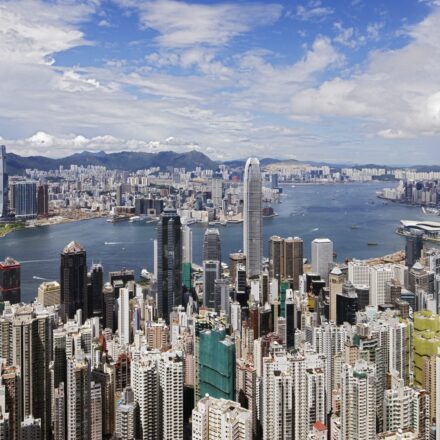I was very honoured to have been invited by Hong Kong’s Department of Justice and the Asian Academy of International Law (AAIL) to speak recently in several of their “Why Hong Kong?” seminars. These were designed to answer concerns about investing in Hong Kong in light of recent public criticisms. In particular, there had been suggestions in the world’s press that businesses were starting to move their investments away from Hong Kong and were preferring to draft dispute resolution clauses so as to avoid Hong Kong arbitration.
Many speakers focussed upon Hong Kong’s independent judiciary, in particular the truly international nature of our Court of Final Appeal, graced as it is by so many commonwealth leading judges. My principal message as an infrastructure lawyer was to invite investors to focus upon China’s two mega projects: the Belt and Road Initiative (BRI) ; and the huge impetus provided within China’s latest five-year plan for accelerated domestic growth, in this region nowhere better exemplified by the massive Greater Bay Area development (GBA). Not only do these incentives provide unparalleled areas for cooperation and profit, but they highlight the continuing uniqueness of Hong Kong as a bridge between east and west and as a super-hub for sourcing both investment and international consulting expertise. I gave as one example international construction clients of ours who saw the huge potential of teaming up with Guangdong-based partners to take advantage of the mass growth of China’s “staycation” industry in Hainan Island, brought about by a combination of the pandemic-occasioned inability of travellers to move outside of China and the domestic incentivisation of the latest five-year plan. We, as Hong Kong lawyers had been chosen as the team leaders, to: assist with the obtaining of bank funding; coordinate via zoom to sort out legal matters with our Hainan offices and participate in Zoom meetings with Hainan licence and other GBA stakeholders to move the project forward; source international designers and other technical consultants based in Hong Kong and very familiar with bringing to fruition GBA projects; draft jointly with our GBA teams all necessary legal documentation to award projects to selected parties and review legal documentation required by local government. Of course, our international clients could have made direct approach to parties in China Mainland, but they found it easier and more efficient to carry that out through us.
From a disputes resolution point of view, I explained why parties doing business with PRC entities anywhere in the world, and PRC parties themselves, would quite frankly be nuts to draft into their contracts anything other than Hong Kong arbitration clauses. This is because of the new remedies, not available if selecting arbitration in any other jurisdiction (eg London, Singapore) whereby by an agreement made between the Mainland and HKSAR Governments, parties to a qualifying Hong Kong arbitration can seek an obtain early asset protection in support of that arbitration. Thus it was that we, working with our Shanghai and Beijing teams, obtained for arbitrating clients USD 360 million of ordered protection/freezing from the Shanghai Financial Court. By “qualifying”, I mean that the arbitration must be referred to one of the six commissions in Hong Kong named in the Governments’ agreement (eg HKIAC, CIETAC Hong Kong). The agreement is so wide that asset protection can in principle be sought in advance of arbitration. Of course, as the agreement is mutual, PRC entities are equally entitled to petition the Hong Kong courts for asset assistance. Asset protection is just one of Hong Kong arbitration’s unique advantages. The special enforcement status given in China to Hong Kong arbitration awards and court judgments is another.
In a separate AAIL seminar “Why Invest in Hong Kong?”, one panel of which I moderated, we were lucky enough to hear from prominent businesspeople, at the top of their industries in the investment and commercial sectors. They are rare to speak on the conference circuit, and their insight was invaluable, as a mark of their successes. They quoted Moody’s having stated that Hong Kong banks’ financial integration with those of the GBA will transform their business scale in China over the next one to two years. They utilised the various new connect schemes and institutional investor schemes, for investors in HK and Mainland to invest in each other’s markets (such as Stock Connect, Bond Connect, Mutual Fund Recognition and the anticipated launch of Wealth Management Connect). They spoke of Hong Kong as the world’s most liquid offshore RMB centre and as an Its international financial centre to rival all others, with very well developed capital markets to support companies in raising capital (eg through IPOs and bond offerings). They were complimentary about Hong Kong’s sophisticated regulatory infrastructure, in particular HKEX. And they actually spoke not about investing in Hong Kong, but via Hong Kong, again stressing the amazing opportunities posed by BRI and GBA.
This series of seminars left me in no doubt that Hong Kong, always a world leader at reinventing itself, has masterfully done it again.








